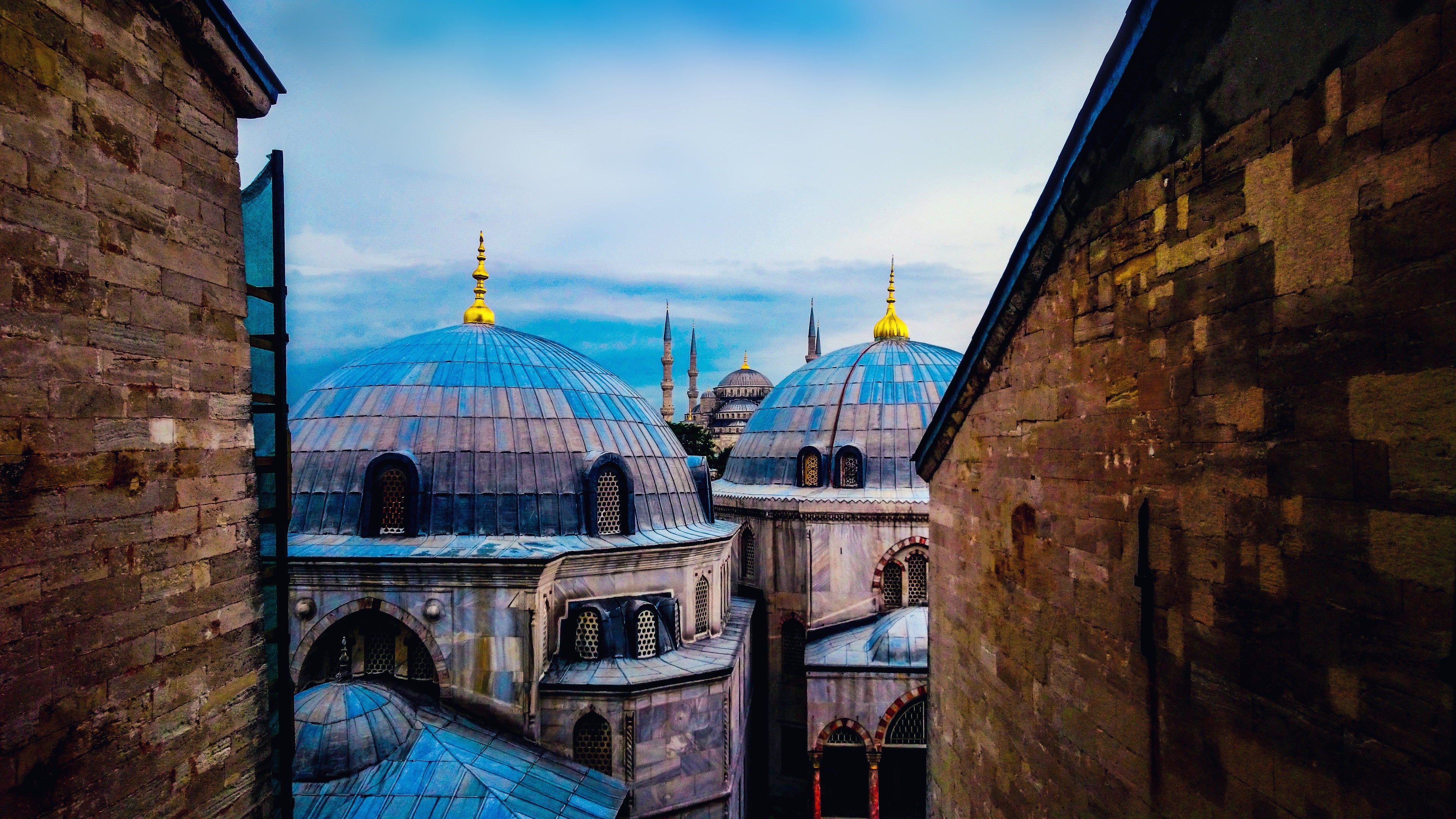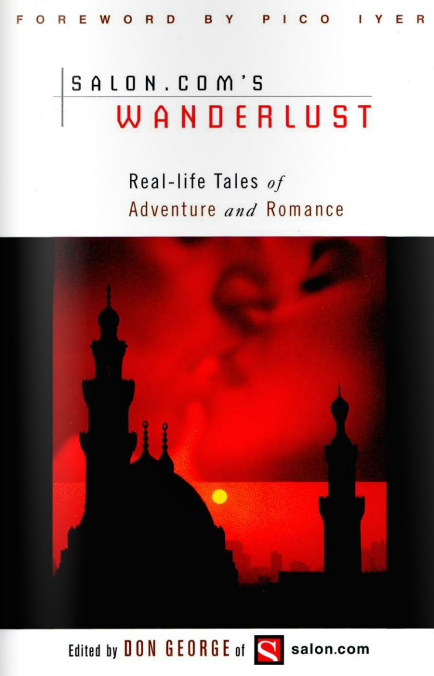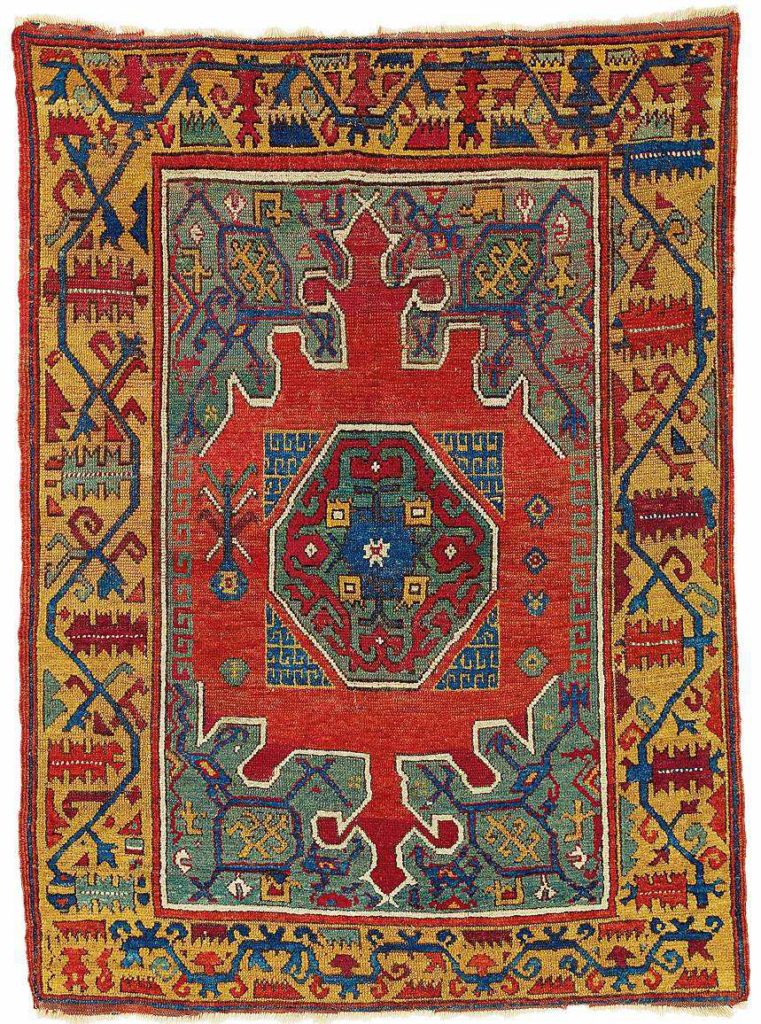
A Turkish shopping adventure

Originally published in the Salon.com anthology Wanderlust
If there is something missing from the American Shopping Experience — and if you’ve been to the Mall of America, as I have, you know not much has been overlooked — it is the act of bargaining. Not buying a bargain, a blandly experienced purchase of an item whose price has merely been called back to our atmosphere (i.e., “I saw these $400 shoes marked down to $39.99 and I had to have ’em!”). No, I mean the act of bargaining, in which buyer and seller come together in the great mambo of marketing, which, in the best cases, makes each leave the exchange satisfied they’ve ripped off the other just a little bit. Bargaining may be disappearing from our commercial landscape (witness the rise of Saturn dealerships), but it lives on in the rest of the world. This is, in large part, why we travel.
Not long ago, a friend called to invite me on a cheap, off-season tour of Turkey. She promised that I would see the ruins of Ephesus and the fairy chimneys of Cappadocia, that I would wake each morning to the sound of the Muslim call to prayer and go to bed each night with a belly full of aubergine. Yeah, whatever, I said, just as long as I get to buy a rug. The truth was that ever since I bought my first car and was introduced to the delirious back-and-forth of negotiating, I had dreamed of going toe-to-toe with the guys who invented the dealer showroom. Since flying carpets were our first automatic conveyance — and if you’ve read “The Arabian Nights” or seen “Aladdin” you know this is true — rug merchants were actually the world’s first automobile salesmen.
And they’re outstanding salesmen, living as they do in the busy confluence between Europe and Asia, a ripe spot for studying humanity and perfecting the first salesman credo: Tell the customers what they want to hear. On my first day in Istanbul, I nearly fell prey to a green-eyed charmer who accosted me in the Kapali Carsi, the famous covered bazaar that holds more than 4,000 shops. (Take that, Mall of America!) “You are a great beauty,” he said so wolfishly that it was clear the antiseptic threat of harassment charges hadn’t drifted into this pungent corner of the world. “You must be Italian.” Actually, I’m a poster girl for the corn-fed Midwestern look, and was so pleased to be deemed continental that I was opening my wallet when my Turkish tour guide dragged me away.
After another half hour in Istanbul, I discovered that merchants’ flattery flew almost as quickly as the prices they quoted, but it was the numbers I had to pay attention to. At the time I visited, each U.S. dollar was worth about 35,500 lira, a complicated ratio, but one that gave me the heady thrill of announcing, “A million? No prob!” I spent the week learning, but it wasn’t until I passed the souvenir stands outside the ruins of Ephesus that I felt I had hardened myself to the Turkish marketing come-on. There, a young man bearing an armful of dolls and a striking resemblance to Johnny Depp deliberately bumped into me. “Excuse me, madame,” he said, his voice warm and rich as ripe olives in sunshine, “You dropped something.”
I looked to the ground and then to him. “What did I drop?”
He paused for a moment, searching my face soulfully. “It was my heart,” he dripped, but I kept walking. I was finally ready to buy a rug.
So we went to Oba, a veritable rug ranch of low-slung buildings and grassy courtyards, just down the road from the House of the Virgin Mary. A hawk-browed Turkish man in a double-breasted suit greeted us and gave a lesson about rug craftsmanship designed to dispel any notions we may have had that a good rug could be purchased on the cheap. He showed us baskets of tobacco leaves, onion skins and indigo used for dying fibers. He showed us the silkworms boiled alive for our textural pleasure — a sacrifice that Doublebreasted assured us the worms were only too glad to make. Same went for the young girls in the weaving room whose hands shuttled and knotted wool with the fluttering speed of hummingbirds. Doublebreasted promised that the girls got full health coverage, nutritious meals and a good wage, and that they didn’t complain when the small-motor demands of rug weaving forced them to leave the work by their late teens. “It is a privilege and an honor to make something so beautiful,” he said, but I couldn’t stop the piteous look that swept across my face as I watched a young girl squatting and squinting before an intricate Persian pattern. An equally sympathetic look crossed her face as she saw us herded into the carpet showroom, lambs to the slaughter.

We were led through a series of rooms where vibrant rugs and kilims were
layered like sheets, rolled into columns, and tacked to the walls — each room
duplicating and expanding upon the previous room’s treasures. At the end of
the procession was a ballroom-sized showroom where we were offered Turkish
apple tea, soda, beer and wine (American car dealers should reconsider the
popcorn and Coke routine, I thought).While we were served by a long-lashed
girl in harem pants, her counterpart — a sulky John Malkovich look-alike in
Western clothes — quietly shut the heavy wood door that was our only escape
route.
Like a Turkish kervanseray floor show in which a slim-hipped belly dancer
preps the crowd for the heftier model and finally for the cartilaginous
creature who shakes her extra-wide-load hips to tambourines and thunderous
applause, the rug show started slowly. Malkovich and Harempants lifted each
rug by the ends, walked to the center of the room and let gravity unfurl it,
the bright colors of Anatolia, Kars and Kayseri washing over us. As the
pacing built, the rugs started to cover the shining wooden floor, then
overlapped one another. Soon we had left our perches on the wooden bench that
lined the wall and begun crawling around on the rugs, examining their fine
weaves and lustrous textures. The climactic crescendo arrived with the
unfurling of a massive silk Persian of geranium reds and robin’s-egg blues.
Though we were already breathless, Doublebreasted clapped his hands and
Malkovich and Harempants, moving like choreographed game-show models, picked
up either end of the carpet and turned it by 180 degrees, shifting the rug’s
palette to crimson and cobalt. Amazing! we cried. Astonishing! we clapped.
At that, a cluster of salesmen who had been gathering in the room suddenly
converged on us and pulled us to separate corners. Three men whisked me into
another room. Their leader was a raven-haired fellow with cheap shoes and a
wistful expression. His name, Ogun, means “That Day” in Turkish, a fact that
was the source of huge laughs for his two squat henchmen who clearly
understood my English, but spoke only in Turkish with Ogun. I started to say
that I was in the market for a 5-by-7 kilim with a lot of red in it, but Ogun
shot me a pained look that suggested such a request was as déclassé as
demanding that an Old Master painting match my sofa. Instead, he ordered the
henchmen to unroll a series of rugs at my feet. When I shook my head at the
choices, the henchmen tossed their arms up in disgust, but Ogun had a more
courtly approach. With each selection I dismissed, he nodded appreciatively
and moved closer to me, as if irresistibly drawn to my aesthetic.
Soon he began dismissing rugs for me — “Can’t you see she won’t like that? She wants
real beauty,” he would scold the henchmen. He asked if my husband would like
my choice of rug, and I said I didn’t have a husband. He shouted in Turkish
to the henchmen, who eyed me up and down, and again tossed their hands up in
disgust. “They think this is a tragedy,” Ogun said, and then sighed toward
his cheap shoes, “and so do I.” At this point he asked if I had a credit card
with me. I said yes. The haggling began.
The rug I selected, or that Ogun had selected for me, was a jewel-toned
affair of blacks, pomegranate reds, jade greens and deep blues. Ogun
explained that normally he would start the bidding around $1,000, but since
this was the end of the season, and since I had no husband, he would start at
$500. I shook my head at the price, and though my blood was racing, I
couldn’t coax out a counter-offer. Ogun strode away from my side with his
hands thrust deep into his pockets, his shoulders hunched. He nodded his head
and Henchman No. 1 scurried to the other room. Ogun smiled, puffed out one side
of his cheek, and slowly blew out a low whistle of air. A few minutes later,
the henchman returned and whispered in Ogun’s ear. Ogun told me that
Doublebreasted had insisted that I leave with a rug today — how did $260 sound?
Well, it sounded pretty good to me, now that my lust for bargaining had
flagged. Ogun wasn’t a shrewd creep, I thought, he was a fellow connoisseur.
Just then, my friend walked in and saw me handing off my credit card.
“What are you doing?” she demanded, and I explained the situation. “No way,”
she said to Ogun. “Two of ’em for $260!”
Quickly, my friend’s bad-cop display
made me realize I had allowed myself to be swept along too easily. Ogun
looked to me. “Two for $260?” he asked, and I nodded. He held his hand to his
heart. He walked to the corner of the room and sighed. “We are friends,
Laura?” he said, coaxing a small tear to the corner of his eye. “Why do you
hurt me like this?” Finally, I understood the theatrics required here.
“Ogun,” I said, so forcefully I convinced myself I was truly affronted. “I
don’t think you’re being honest with me …” and I snatched back my Visa card.
At that there was a very pregnant pause in which Ogun and the henchmen bored
their Turkish eyes at me. They huddled and Henchman No. 2 threw his hands up in
the air and pointed at me. Henchman No. 1 made a spitting noise. Ogun looked
over his shoulder. “So you want two rugs?”
“If the price is right,” I said. Henchman No. 2 sniffed and gestured again.
Ogun came back to my side and put his arm around me, hand to his collarbone
in a gesture of sincerity. “My friend, you know that I must make a living?” I
clenched my fist around my plastic. He let out a heavy sigh. “My friend, you
may have two for $400. No lower please.”
“Three hundred,” I said.
“Three sixty,” he said.
“Three hundred,” I said.
“Three twenty-five,” he said.
“Sold,” I said, and at that there were cheers from the henchmen and from the
small crowd from my tour bus that had gathered for the final negotiation. As
I handed off my Visa, Ogun took my hand and wrapped it under and over his
forearm as though we had been wedded by this exchange of currency. He
lovingly folded and packed my rugs in brown paper and then in a nylon case he
promised would fit nicely under my plane seat. It did.
Now I come across my two rugs, one in my living room, the other in my
bedroom, and I feel a wave of pleasure at my purchases. But the souvenir that
pleases me most is a photograph I have of Ogun and me. We are standing in the
courtyard of the rug ranch — I have my hands clasped and my head tossed back in
laughter; he gazes at the camera with the smallest trace of a smile. We both
look so satisfied — like we each ripped off the other just a little bit.
